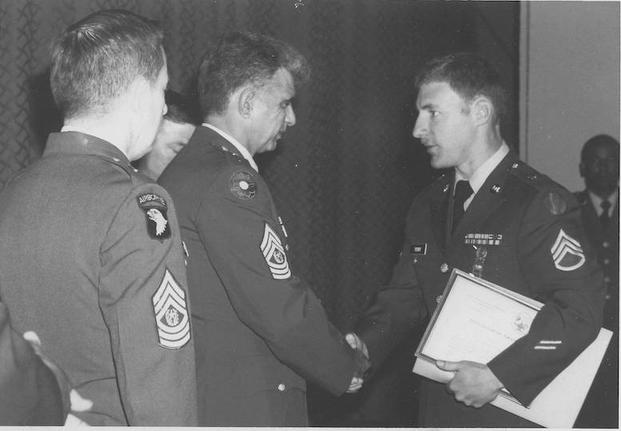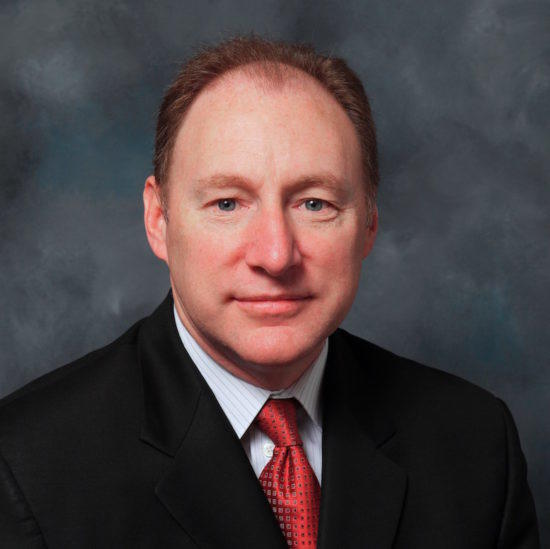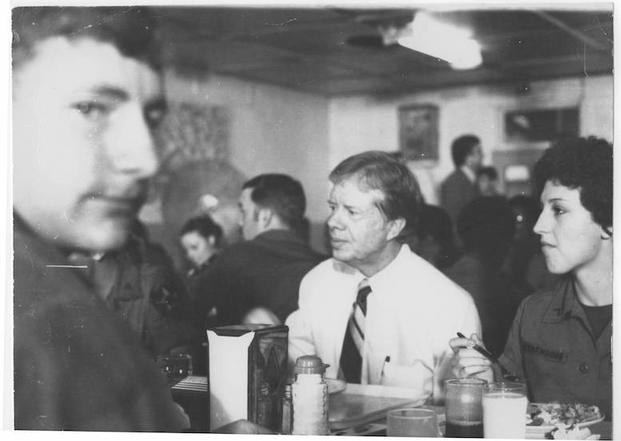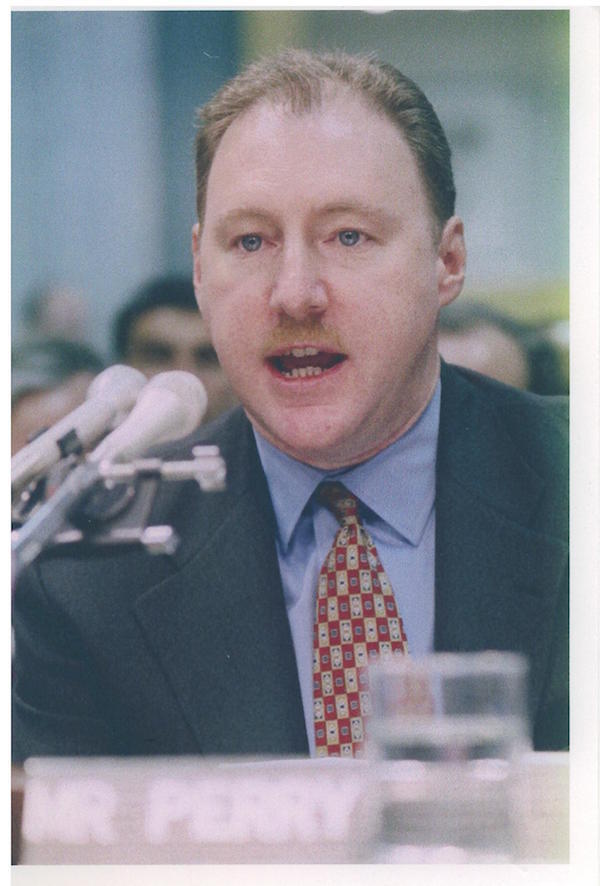Mass Fidelity is a daring and adventurous audio startup, making innovative and ambitious products that stand out from the endless parade of cut-rate audio products on the market. Their flagship product, the Core, aims to deliver true stereo sound from every listening position in a compact package. The Relay is a Bluetooth DAC converter that can add high-quality audio streaming a vintage hi-fi setup.
Bob Perry is Chief Revenue Officer/Chief Marketing Officer at Mass Fidelity. He's also an Army veteran with a long and impressive career in the consumer electronics business. He's got amazing advice and perspective on what active duty men and women can do to prepare for the transition to civilian careers, what advantages military training gives to job seekers and how to present yourself in an interview. Bob's worked at companies large and small and says he's interviewed over 500 people for jobs over the course of his career. He offers a lot of practical advice and insight that should benefit anyone, no matter where they find themselves in their careers.

Give our readers the background on your military service.
When I was 17 I knew everything, so I quit high school and joined the Army and I spent ten years in active duty. I grew up in northern Pennsylvania in a rural community. After about six or seven hours in the Army, I realized I didn’t know everything. And it was a great experience for me.
I served in a lot of different roles. I was in Electronic Warfare Intelligence, I was a counterintelligence agent, I was a combat engineer, I studied at the Combat Engineer School in Fort Leonard Wood. I did a lot of different things. I got out of the Army as a staff sergeant and went into the active reserves. I did another 12 years in the reserves, so I had 22 years of service. I went into what's called the Gray-Area Retiree List after 22 years as a master sergeant.

How did you start your business career?
Formal education is highly prized in the military. Over the years, I was able to go to school while I was on active duty. Sometimes that meant carrying my books in my backpack out on the DMZ in Korea, sometimes that meant going to a regular university campus where I was stationed.
I have a Bachelor's Degree in Business Administration from Columbia College in Columbia, Missouri, and I have a Master's Degree in Management from Webster University in St. Louis.
I knew to be prepared for a future civilian career that I needed to get a formal education. While I was on active duty during those ten years, I was able to complete my high school education, get a bachelor's degree and then get a master's degree.
After about 9 1/2 years of active duty, I realized that I needed to start preparing myself to transition to civilian life. I read a lot of books about kind of the transitioning experiences that other people had. I went out of my way to make friends with people in the business community and understand emotionally and socially how they relate to their job.
It's a required part of the military culture that your relationship to your job, what you do every day, is quite different than what you find in the civilian sector. The joke in the military is that civilians actually have a life. I do believe that military people have a life too, but your relationship to your coworkers and your relationship to your employer is quite different.
I spent a lot of time reading and talking to people and trying to make sure that I understood that. I also spend a lot of time trying to civilianize my military experiences because, if you use all the jargon and the acronyms, a lot of military training and experience will have no relevance. But when you actually get under the hood, most military jobs have tremendous relevance to the civilian environment.
There are a tremendous number of things that military people learn that are extremely valuable to employers: self-discipline, mental and physical endurance, commitment. These things mean very different things in the military than they do in civilian life and most civilian employers really appreciate them.

The #1 issue for most military people is how they properly translate into a resume, into a job application, all of their experiences in a way that the employer can understand that they're valuable.
It really starts by putting yourself in your employer's shoes. If there's a position or a job you're interested in, think carefully about it from the employer's perspective. What are they looking for? How do you make sure that you communicate that you're actually a good fit for that?
When I finished my master's degree, I was on active duty and was preparing to transition out. I went through a process of looking for positions. Today, you do that on the web. I tried to find a job that would give me a wide range of business experience because my objective was to go into business as opposed to some kind of technical field. As my civilian career developed, I would then be able to choose more effectively and have a better understanding of what those other jobs were about and know what things that I’d really like to do.
I went into commercial banking which allowed me to look at a lot of different businesses and companies. I got a financial understanding of how they work and what the risks were in each field. I got an idea of what companies are like under the hood, not just financially, but operationally, what made a great company and what traits made for not such a great company. What were all of these issues? So I used that experience as a springboard to learn.

After a couple of other positions, I ultimately ended up in an entry-level sales and marketing position with Sharp Electronics.
I've been in the consumer electronics business for 28 years since I got off active duty. Think about the skills that you use in the military through the promotions system. What are the experiences that you need to have? What's the training you need to have? What are the skills that you need to have to move through the ranks in the military and to move jobs in the military?
Well, those exact same things exist in civilian life. I took a lot of care to expose myself to a range of different business experiences so I could continue to grow professionally, have more responsibility and really become more and more well-rounded. I found that my military training and foundation was an extraordinary advantage compared to my peers in the workplace.
If you're trying to move ahead in business, you're literally in a competition and there's always a comparison that goes on. Initially, I wasn’t really too aware of it, but a number of employers pointed out to me that I was different from some of their other employees who were somewhat close to me in age and had the same education or experiences. It didn’t really sink into me for a long time that the things that made me different were actually just things that you learn in the military. They're just part of who you become.

Many military people don’t necessarily understand the span and range of different jobs that actually exist in civilian life If they can open their horizons, they’ll realize that there's a tremendous amount of opportunity.
To me, the ultimate job interview is where somebody comes in to a job and says, “I may or may not know every little nuance of what you're looking for in this job but, at the end of the day, I work hard, I learn, I'm loyal, I'm honest and I guarantee you that 90 or 120 days from now, you're gonna be thrilled you hired me.”
I've probably interviewed more than 500 employees for different positions, some senior, some junior, and it is actually shocking that nobody has yet said that to me. And, the funny thing is, that’s exactly what an employer is looking for.

It's very easy for military people to think, “Here's what I have, but unfortunately here's the long list of what I don’t have.” They really need to put themselves in the employer's shoes and think about all the people that employer interviews. What does the employer want? Someone who works hard, someone they can trust, a smart person who will learn, who will get it done.
It's very rare to hire an employee who already knows everything about a particular job. It's much more common to hire somebody who has some kind of related experience. Once they get in the job, they need a little time to get their feet on the ground.
Military people have an amazing opportunity in literally any field. The skills you learn in the military and the way you're trained in the military is tremendously valuable to an employer.

Is there anything from your military experience that you needed to unlearn when you transitioned to business?
In the military, we always assume that everybody that is in our unit, our organization, on our team, is absolutely aligned to the point of self-sacrifice to the mission. In other words, we are committed. We are committed in a way that a lot of people can't actually understand.
It's a mistake to assume that in civilian life people have the same level of commitment to their job. There's more politics in civilian life, there's more social and socialization issues to worry about, there's this whole range of that stuff that quite frankly never came up in the military.
I never once woke up in the morning and asked myself if the guys in my unit or my team or wherever I was at that time, actually shared the same objective. You never ask that in the military. It would be just beyond comprehension that you would have to.
In civilian life, there are people who want to go to work every day and just get it done, go home, and that’s the end of it. There are people with an unlimited drive for success. There are also people who believe that performance is not necessarily the best way to get ahead, that social skills and politics are a better way to get ahead. Of course every part of the world is political and the military has politics, but most military people are highly performance-oriented. It's not necessarily true in the civilian world.

The Mass Fidelity Core really does give legit 2-channel stereo sound from every angle.
How did you get from your first civilian job at Sharp to your current position at Mass Fidelity?
I joined Sharp in kind of an entry level and market development role. Due in large part to the skills that I learned in the military, I was head of the consumer LCD business at Sharp and had a very large team within a couple years.
Then I moved from there to the Vice President of Marketing at Mitsubishi Digital Electronic. After that, I helped launch LG Electronics in the United States. I later ran Panasonic's Consumer Electronics Business in the US and later became a deputy CEO, effectively a COO of a Chinese manufacturing company based in China.
The international experience that I gained through the military was really important. I've progressed through a series of positions, just like you would in the military, by trying to understand what experiences make me more skilled and valuable.
Now I'm in a startup. Here's the funny thing about a startup. At a startup, which is typically a small company, we have a very small team. Just like the military, every person on that team is important. While people are replaceable, the individual actions and the individual accomplishments of each person on the team make a difference every day.
The second thing I would say about working at startups and smaller companies is that having more than one skill set is really important. To start and structure a business requires a lot more knowledge, experience and skills to succeed than it does to come in and just do a job in a fairly well-structured, successful operating business.
In a startup, everybody does everything. If you're not comfortable with the idea that you have to contribute across a wide range of jobs and areas of expertise, it won't work.

I happen to enjoy working in a startup environment. Of course, I enjoy many different environments, but in a startup environment you can contribute very horizontally, regardless of your title or position. Everybody is in it pulling together. It feels a little bit more like the military than big corporations where, if you're the guy in charge of supply chain logistics, you focus on supply chain and logistics. You don’t stay up late at night wondering how well sales or marketing or finance is doing.

If people who are serving reflect back on when they first came in to the military, they’ll remember that they saw the world one way and the first thing the military did was get rid of that view, not because it's necessarily inaccurate, but because the military needs you to view the world, your surroundings, your limitations or your lack thereof in a very specific way.
When you're in a company and you're launching products and you're trying to create a situation where the consumer sees your products, understands them, recognizes the value in them and wants to pay for them, in a lot of ways you're doing exactly what you do in the military. You're trying to create a mental paradigm shift. You do it for your troops in the military and then in business we do it for consumers. We want them to see there's something very, very cool and new.
For more veteran job tips and resources, check out these pages on Military.com:




